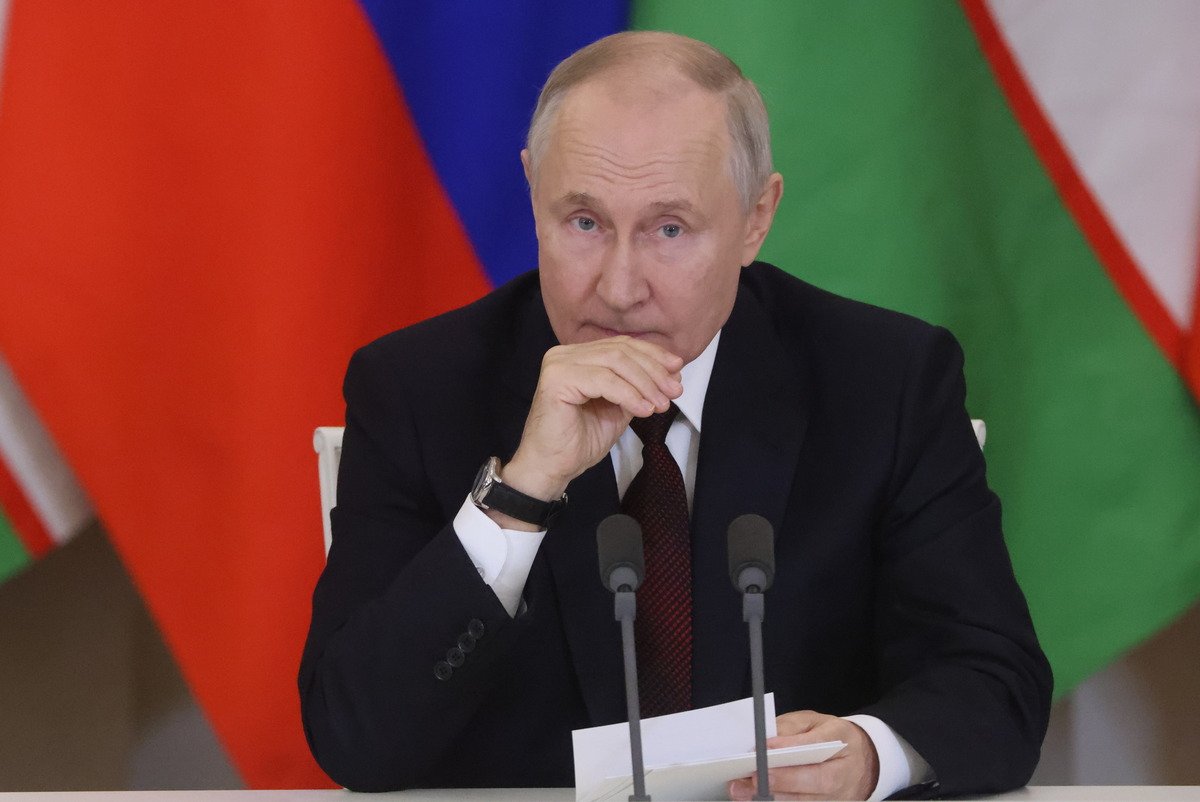Russian President Vladimir Putin could stare down renewed Western support for Ukraine in the wake of days of bloodshed in Israel and Gaza, one expert has told Newsweek, as the death toll following the weekend’s violence rises.
“The recent escalation in the Middle East will only encourage Western countries for a more radical approach when it comes to supporting their allies,” Oleksandr Kraiev, an expert on U.S. foreign policy with the Ukrainian think tank Prism, told Newsweek.
“It is not about ‘less weapons, more peace.’ It is about providing tools for safeguarding peace,” Kraiev said. “So Israel may play into Ukrainian hands.”
Shortly after Palestinian militants fighting for Hamas launched coordinated land, sea, and air attacks on Israel early on Saturday and Israel started waves of air strikes on Gaza, the United States threw its weight behind Israel.
U.S. President Joe Biden said Washington would “offer all appropriate means of support” to Israel after the “horrific and ongoing attacks,” adding that the U.S. “unequivocally condemned this appalling assault against Israel by Hamas terrorists from Gaza.”
British Prime Minister Rishi Sunak said the United Kingdom was “unequivocally” supporting Israel. London is “poised” to support Israel militarily should it request such assistance.
Unveiling a new military aid package in mid-September, Biden said U.S. support for Ukraine was focused on Kyiv’s “long-term security” and making sure that Ukraine is “capable of deterring future threats against sovereignty, territorial integrity and freedom.”
“Because that’s what this is all about—the future, the future of freedom,” Biden said. “America can never, will never walk away from that.”
Kyiv is heavily reliant on Western aid, notably from the U.S., to sustain its grinding war effort against Russian forces in eastern and southern Ukraine. But some in Kyiv may have been feeling anxiety after the U.S. only narrowly avoided a government shutdown in late September by stripping away aid for Ukraine.
On Saturday, the Institute for the Study of War (ISW) suggested that the Kremlin was already using the Hamas attacks as a weapon to divert Western attention from Ukraine and erode the appetite in the West to send military aid to Kyiv.
Moscow was hoping to “target Western audiences to drive a wedge in military support for Ukraine,” the ISW said over the weekend.
Russia’s most prominent propaganda voices see Hamas’ attacks on Israel as “something that may affect the U.S.,” and “any such disturbance is good news for Russia,” Kraiev said. However, there is growing concern among Ukrainian experts about the idea of “Israel-style guarantees,” he added.

Russian President Vladimir Putin at the Grand Kremlin Palace in Sochi, on October 6, 2023. Putin could stare down renewed Western support for Ukraine in the wake of bloodshed in Israel and Gaza, an expert told Newsweek.
Contributor/Getty Images
Ukraine has long petitioned NATO member states for fully-fledged membership to the alliance, which has been promised to Kyiv at an unspecified point further down the line. But NATO is unlikely to admit Ukraine as a member until the war with Russia is over, as its membership would obligate the alliance to join the full-scale war against Moscow under Article 5 of the alliance’s treaty.
The idea of “Israel-style security guarantees” has been banded about for months, which would effectively mean robust military and security support and training without the binding Article 5.
“Current developments show that there is still a big lag between the actual assault and the support arriving from the partner states,” Kraiev said. This has spurred Ukraine to feel more certain than ever that “only full-fledged NATO membership can be a decisive guarantee for Ukrainian security in the future, not only political and resource support of ‘Israel scenario.'”
